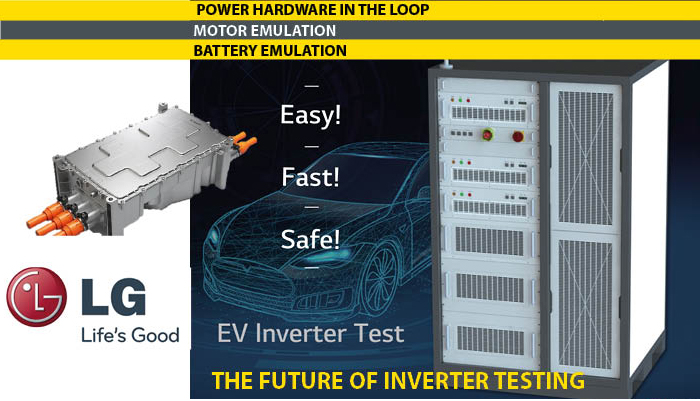
Motor Emulation
- Motor emulation accuracy over 95%
- Fast respone for Torque / Rpm variation
- Resolver and encoder interface
- System protection for various fault conditions
- Mulit-phase (3,6,12) motor applicable (G2.0)
Battery Voltage Emulator
- Voltage source for evaluation inverter
- Supply voltage up to 1000 VDC (G2.0)
Low Investment and Operation Cost
- Compact design having small footprint
- Low initial Investment and maintenance
- High energy efficiency
Scalable Power Capacity (G2.0)
- High power inverter test (Max 1.2 MW)
Dynamo vs. Active Load Emulator
Inverter Test on Dynamo
LG Active Load Emulator
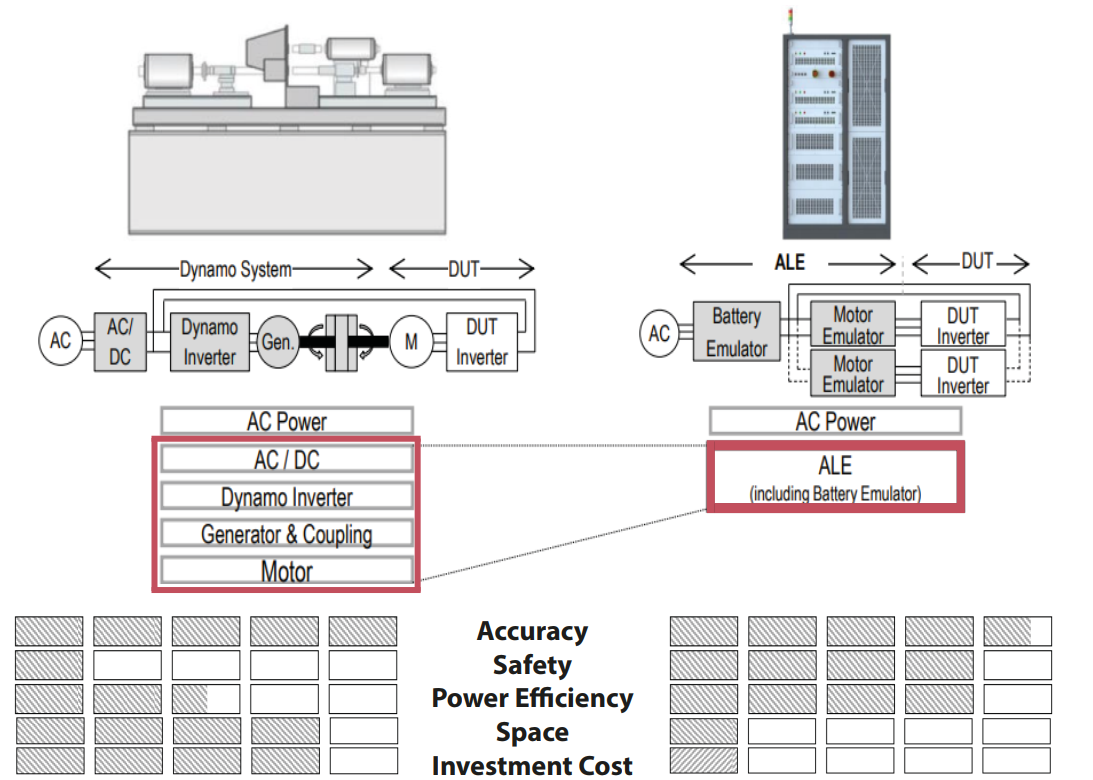
Specification
General
Catagory | G1.0 | G2.0 |
Size (W x H x D) | 740 x 2170 x 1150 mm | 1250 x 2000 x 1290 mm |
Weight | 1600 kg | 2000 kg |
Power Capacity | Individual channel 150 kW | Individual channel 150 kW |
Coolant | DI Water or compatible | |
Coolant Flux | 45 L / min | 60 L /min |
IP Rate | IP 20 | |
Service Life | 10 Years | |
Battery Emulator
Catagory | G1.0 | G2.0 |
Nominal Power | 60 kW | 80 kW |
Output Voltage | 195 - 800 VDC | 195 - 1000 VDC |
Nominal DC Current | 240 A | 240 A |
Motor Emulator
Catagory | G1.0 | G2.0 |
Num. of Motor | Individual Two Motors, Parallel One Motor | |
Operation AC Frequency | 0 - 800 Hz | 0 - 1500 Hz |
Individual AC Load Current | 400 Arms (Nominal) | |
Parallel AC Load Current | 800 Arms (Nominal) | |
Power Extension | N / A | Up to 4 parallel connections |
Back EMF | 0 - 480 Vrms | 0 - 612 Vrms |
Torque Direction | P, N | |
Num. of Motor Pole | - 24 poles | |
Resolver Lobes / Offset | 2 - 24 / -π - π | |
Resolver Excitation Frequency | 10 - 20 kHz | |
Encoder Type / PPR | N / A | Incremental (A, B, Z) |
Communication | CAN2.0A | |
ALE G1.0
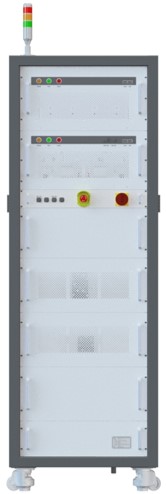
ALE G2.0
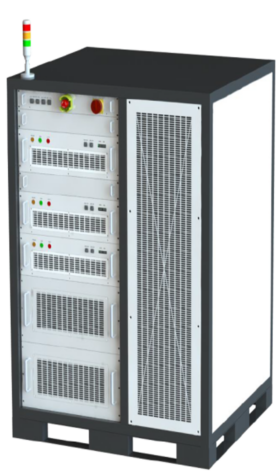
Overview
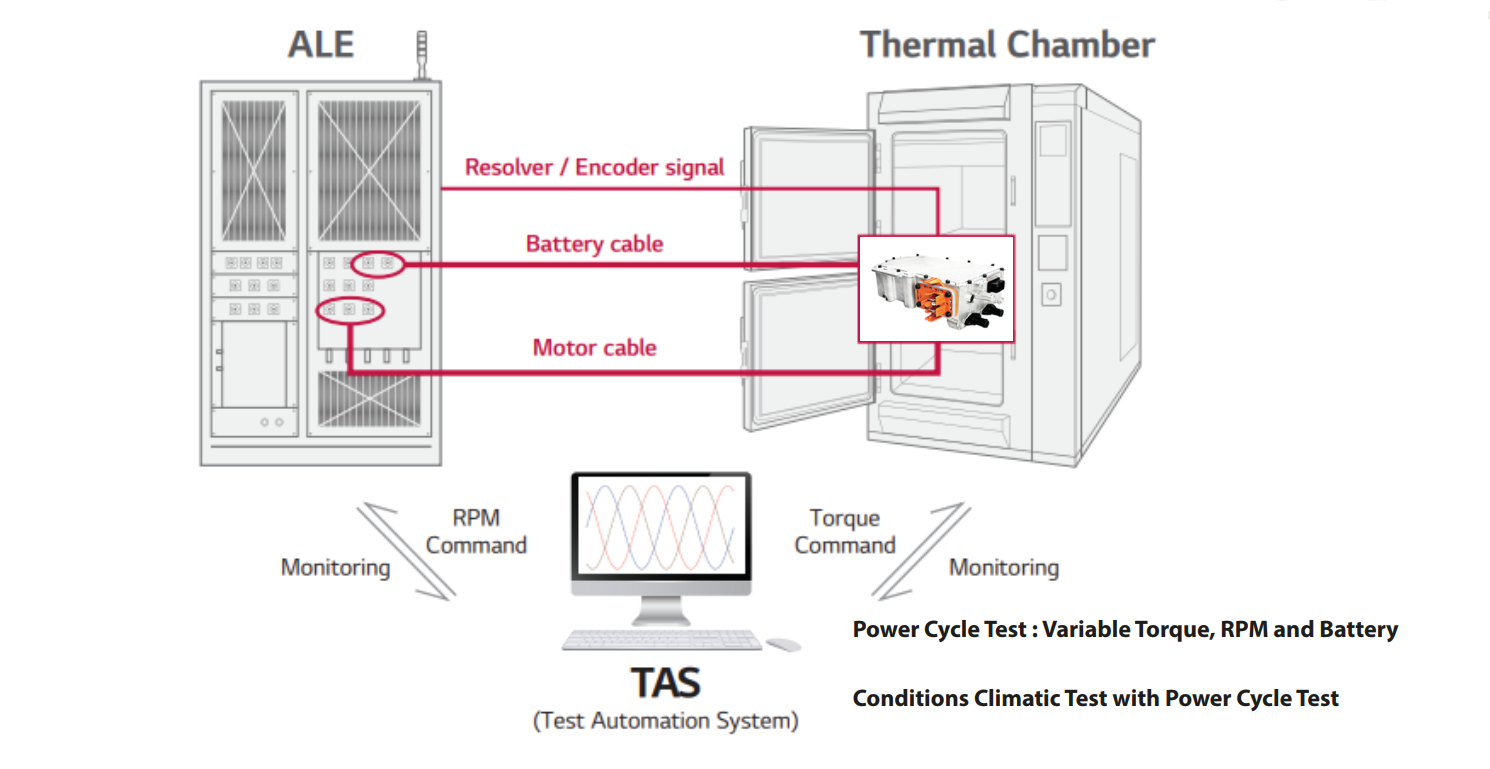
Scalability
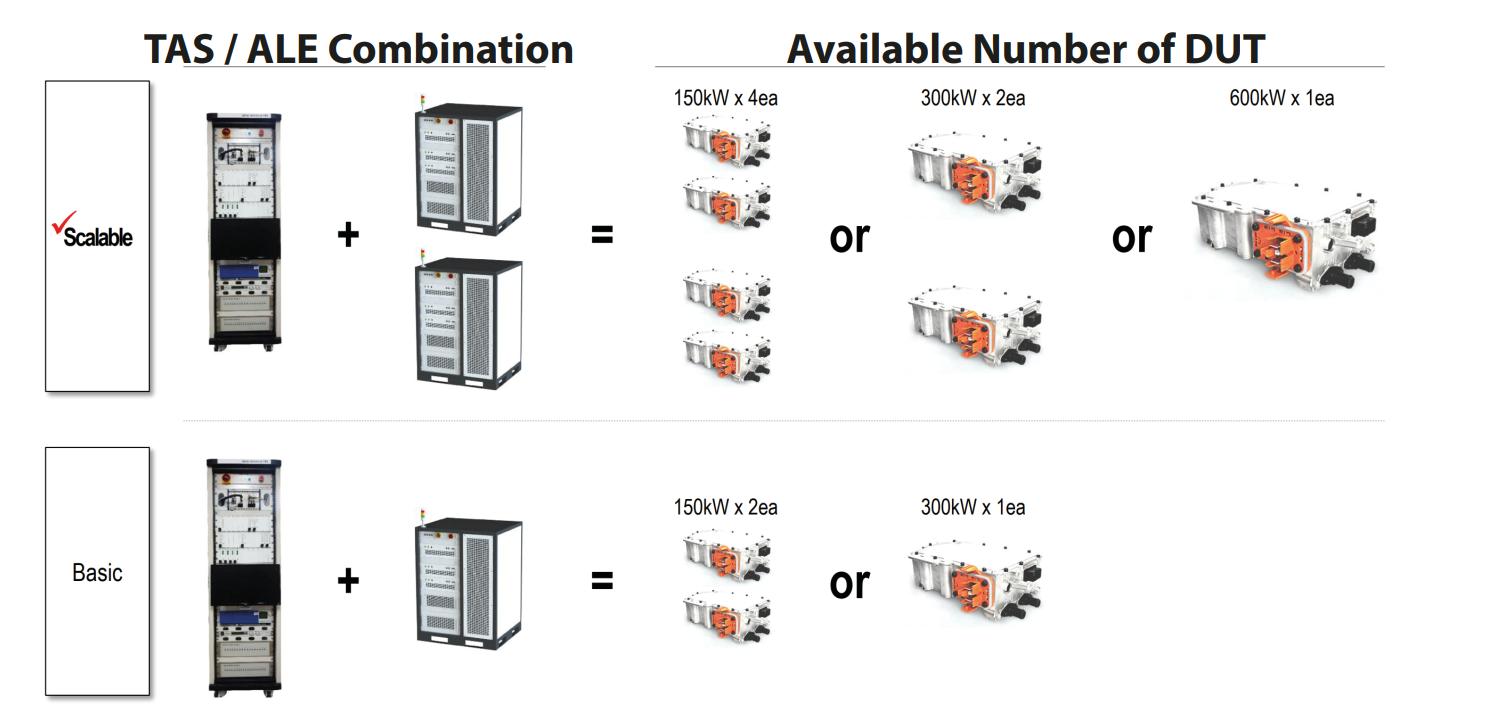
Active Load Emulators are highly relevant in inverter test bench technology as well. An inverter is an electronic device that converts direct current (DC) to alternating current (AC) or changes the frequency, voltage, or phase angle of the AC output. Such inverters are used in various applications, including renewable energy sources like wind or solar power, electric vehicles, industrial installations, and more.
- Load Simulation: Inverters need to be tested under different load conditions to ensure they can deliver expected performance and stability. Active Load Emulators allow simulating and testing the output power produced by the inverter in a controlled environment.
- Power Hardware in the Loop: Due to the regenerative feedback enabled by the use of this technology, the energy demand is significantly reduced.
- Efficiency Testing: The efficiency of an inverter can be measured by simulating different load conditions. An Active Load Emulator can impose variable loads on the inverter, assessing its efficiency across the entire operational range.
- Dynamic Tests: Inverters often need to handle rapid load changes, particularly in applications like electric vehicles. An Active Load Emulator can replicate such dynamic load changes, evaluating the inverter’s ability to respond quickly.
- Stability Checks: Inverters must operate stably, without causing unwanted oscillations or instabilities in the system. Simulating various load conditions using Active Load Emulators can help verify the inverter’s stability.
- Development and Validation: When developing new inverters or updating existing models, Active Load Emulators facilitate thorough validation and optimization before the inverters are deployed in real-world applications.
Overall, Active Load Emulators are indispensable tools in inverter test bench technology for analyzing and ensuring the performance, reliability, and interaction of inverters with the power grid or other energy sources.
Easy to Use
- No rotational parts
- Small form factor (in line test OK)
- Configurable with Automatic Test System
Safety / High Reliability
- Safety for Electric and EMC
- Self Overload Protection
- Long time continious operation (4500 hours in validation process)
- Robust / Reliable
Application
- EV inverter R&D Status
- Validation Process
- End of line test for mass production


